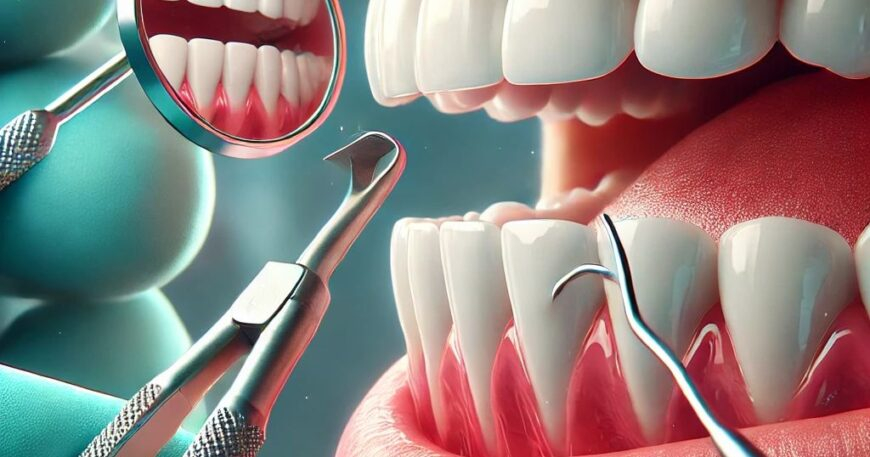
The Importance of Healthy Gums in Dental Implant Success
Dental implants are a surgical procedure in which an artificial root is placed into the jawbone to support a prosthetic tooth, replacing a missing natural tooth. The success of this procedure largely depends on the quality of the jawbone and healthy gums, which play a vital role in stability and healing.
The Role of the Jawbone in Dental Implants
The jawbone serves as the foundation for dental implants. It must have sufficient thickness and density to provide stable support for the implant. If the bone is too thin or weak, a bone graft may be necessary to reinforce the area before implant placement, The strength of the bone ensures the stability of the implant, reducing the risk of complications in the long run. Patients with osteoporosis or other bone-related conditions may require additional evaluations before proceeding with the implant surgery.
The Importance of Healthy Gums
Gums play a crucial role in protecting the implant and ensuring long-term success. They cover the jawbone and surround the teeth, providing a clean environment that resists infection. Proper oral hygiene and regular dental check-ups help maintain gum health, reducing the risk of peri-implantitis, an infection that can lead to implant failure, Additionally, the presence of strong, pink, and firm gum tissue ensures better healing and integration with the implant, offering long-lasting support.
The Integration Process
After the implant is placed, a process called osseointegration occurs, where the implant fuses with the bone. Healthy gum tissue supports this integration by forming a tight seal around the implant, preventing bacteria from entering and causing complications This process can take several months, depending on the patient’s overall health and bone quality.
Pre-Surgical Assessment and Aftercare
A thorough assessment of the bone and gums before surgery ensures the best outcome. Dentists may recommend additional procedures, such as bone grafting or gum treatments, to enhance implant success. Post-surgery care, including regular cleaning and check-ups, is essential for long-term stabilityProper nutrition, avoiding smoking, and following the dentist’s aftercare instructions contribute to a faster recovery and increased implant longevity.
Internal and External References
For more information about dental implant procedures, you can explore our detailed guide on dental implant recovery or visit The American Academy of Implant Dentistry for expert insights.
Get In Touch
Maintaining healthy gums and strong bone structure is essential for successful dental implants. If you are considering dental implants, book an appointment with Dr. Rana today. For further assistance, feel free to contact us.





